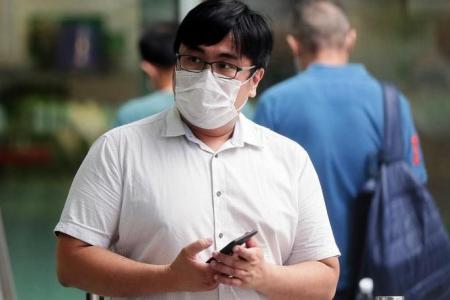Former research fellow convicted of forging expense claims and cheating NUS of $39,500
A former research fellow at the National University of Singapore (NUS) submitted bogus claims and cheated the institution of $39,500 between 2010 and 2018.
He would pay for items like a radio and equipment for his car, for himself and his family, and then forge documents to make claims up to 16 times higher to NUS.
On Tuesday (June 14), Thomas Teh Kok Hiong, 42, who was a research fellow at NUS' Department of Biomedical Engineering, pleaded guilty to a slew of cheating and forgery offences.
Multiple similar charges will be taken into consideration during his sentencing, which has been postponed to July 25.
Teh was earlier charged alongside former NUS professor Tan Kok Kiong, 53, who was accused of separately submitting bogus claims of more than $100,000.
Deputy Public Prosecutor V. Jesudevan told the court thatTeh submitted 22 claims to NUS to fraudulently receive some $39,500 between 2010 and 2018.
Investigations revealed that he gave false and inflated claims to the university, as well as for expenses he did not incur, such as purchases made by his family.
Such claims are made to NUS through an electronic system, which requires staff to enter details of their expense and supporting documents like invoices or receipts.
The entries are run past administrative staff before the money is disbursed.
The DPP added that the staff do not conduct any physical checks to verify if the goods have been delivered and trust that the claims are genuine.
DPP Jesudevan said: "To avoid detection and create legitimacy to these false claims, (Teh) altered receipts and invoices."
It turned out that the expenses which Teh claimed for consumables for projects were for his personal purchases or made up.
In 2018, he submitted a false claim of $2,820 for a motor and other equipment.
This was untrue because he had bought a label printer and a radio for his own use, which cost around $1,000. He then forged a document to support his expense claim to cheat NUS into disbursing him $2,820.
In 2017, he paid $300 to install solar film on his car. Similarly, he forged a document to make a $4,815 claim - 16 times higher - for "UV protective film for lab hood and cabinets".
Seeking at least 24 weeks' jail, DPP Jesudevan said Teh's offences were serious as he had cheated a public institution, and that his methods were serial and habitual.
He noted that Teh has made full restitution to NUS.
Urging the judge to sentence Teh to nine weeks' jail, defence lawyer Tan Hee Joek cited that a private doctor reported that Teh suffered from obsession compulsive disorder, and that his mental condition had a contributory link to his offences.
The DPP said that little weight should be given to the report as the doctor came to a conclusion after only interviewing members of Teh's family.
The case has been adjourned to consider Teh's sentencing.
Those guilty of forgery can be jailed up to four years and fined. The maximum punishment for cheating is three years' jail and a fine.
Get The New Paper on your phone with the free TNP app. Download from the Apple App Store or Google Play Store now



